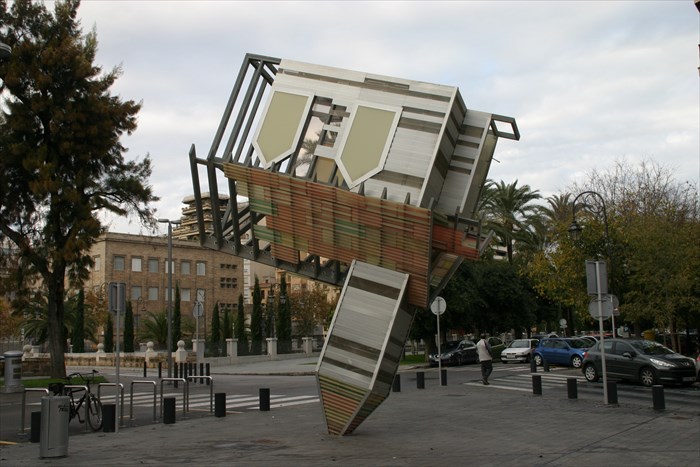Most of us will have read about the sentencing of the Catalan leaders, and quite a few will have also seen the manifestations and stand-offs between demonstrators and police with a focus at Barcelona airport. I have my not-adequately-informed perspectives, and being neither Catalan nor Spanish am limited as to what I can really say.
Maybe though a few personal perspectives. I have always been right in all my opinions. I am convinced of that because I see what I see, and my sight… Oh no! All that just came out before I could press the delete button. How often we would love to find the delete button before our own inadequacies, weaknesses and arrogance are revealed. Yet not possible.
Things happen and then we are right there in the situation with our history and weaknesses delightfully manifesting. I had a situation this week. Here we are with two guests and it comes to paying the bill at the cafe. The bill comes, clearly totalling up what we have had and I pay exactly what was on the bill. Two minutes later as we stand up to leave, across comes the waiter with the manageress. ‘You owe us another 6.00€. You had two more drinks, and they were 3.00€ each.’ I look at the bill in her hand – 21.00€ and a list of exactly what we have just had, and there she is standing with 21.00€ in her hand that I have just given her! We also know exactly what we have had… A water-tight case and I will need no defence lawyer in this situation. Gayle is beginning to open a sensible dialogue and everything will be within seconds clear. However, there is a better way of doing this. In fact there is a right way of doing this, which has nothing to do with the money of who owes who what, it is about everyone being clear that I am right. So I quickly take over, and absolutely make sure that that my perspective becomes the only one. Stuff the money, I now have a platform for all my gifts. A God-opportunity handed to me on a plate. What God has opened no-one can shut.
On this rare occasion my perspective was the right one (nice for once), but now with reflection, why did I have to do it that way? The manageress did not have a leg to stand on. The best part of the experience was going back a little later to find the manageress to apologise to her for being too aggressive. I have no idea if she needed an apology or not, she graciously insisted she did not, but I needed to do that.
I am convinced change is easy. A little humility goes a long way. If I took time to reflect I would quickly understand the blockage to my six decades of slowness to change. A little bit of humility goes a long way, so I guess my lack of change and my wonderful double portion gift of revealing my immaturities just might be connected to a lack of humility. However, surely not, so I will move on very quickly.
A personal perspective because when it comes to something that really matters how difficult change becomes. Prison sentences, separated from families, histories being recounted that go back generations… it is hardly surprising that there are stand-offs. After all I can have a stand-off about 6.00€.
Dialogue and de-escalating potential conflict is not easy, and in Spain right now it will not be easy. Maybe though I will have a few opportunities to add just a little bit of humility to my prayers for the land. I don’t have to know too much about the rights and wrongs of the current situation; I probably won’t have an opportunity to have any level of influence at a visible level, but there will always be something I can do.
We certainly cannot stop what is beneath the surface manifesting. That is clearly a good perspective to hold. But by the grace of God there are aspects beneath the surface that can be so dealt with that they do not manifest, as the soil of history is cleansed.
These next 26 days in Spain running up to yet another election will be so key. We certainly cannot sit back and tick off what manifests. There are events that will take place that turn the outcome, but the nature of those events will be key. Who wins the election is not at all important; the outcome is what is important. A greater level of listening, co-operating, laying down personal agendas – the outcome is what is important.
These are huge days for Spain. There was a ‘transition’ over the years 1975-78 in the move from dictatorship to democracy. In a few days time there will be an event that has been described (and I believe prophetically described) as closing the loop of the Transition. A major door in and through the Transition of 75-78 was a tragic political shooting, right in the area where we live – that being one of the main reasons why we wanted to live here. As the loop closes there will be events. If we can shift something the events can take place in the heavenlies. That would be great. We do not need yet more manifestations of what is there. Enough is visible.





